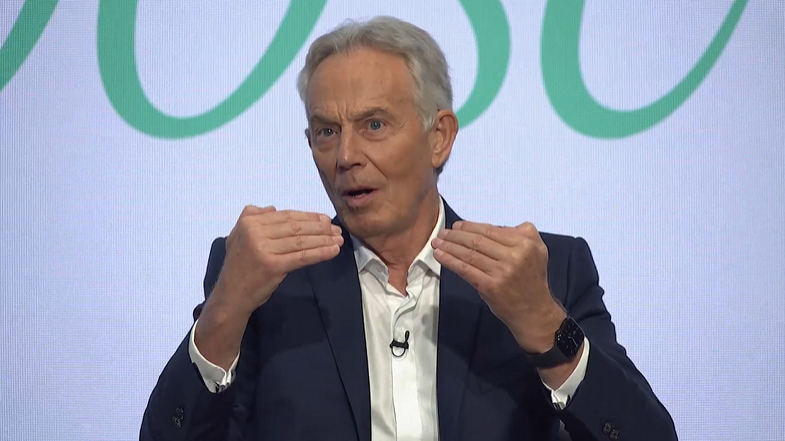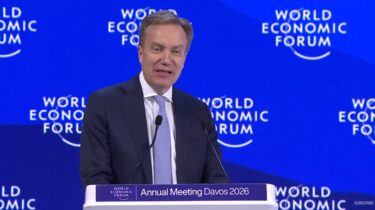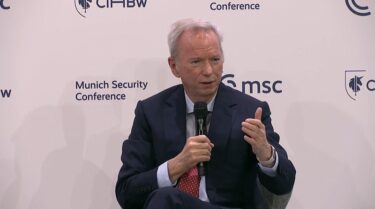Former British Prime Minister-turned globalist technocracy enthusiast Tony Blair says that digital ID is essential to modern infrastructure but requires “a little work of persuasion.”
Speaking today at the Tony Blair Institute for Global Change (TBI) Future of Britain Conference 2024: Governing in the Age of AI, Blair continued his years-long push for digital ID adoption.
“Digital ID is an essential part of a modern digital infrastructure […] Though, we have a little work of persuasion to do here, it has to be said”
Tony Blair, Future of Britain Conference, 2024
“An analysis on digital ID, which is an essential part of a modern digital infrastructure, could yield benefits not only for ease of interaction with government but for the public finances,” said Blair.
“Though, we have a little work of persuasion to do here, it has to be said,” he added.
Speaking at a session on “Why Building a Digital Backbone Is Essential for Britain,” India’s former Minister of State for Electronics, Information Technology, Skill Development and Entrepreneurship Rajeev Chandrasekhar said that digital ID was the bedrock of a digital government architecture.
“Digital identity is the bedrock and the core to a digital government architecture”
Rajeev Chandrasekhar, Future of Britain Conference, 2024
When it came to the notion of individual civil liberties and digital identity, Chandrasekhar said that it was “an interesting debate to have” and that digital ID didn’t imply a violation of personal privacy.
“People who say digital ID automatically implies a violation of personal information privacy have not read the last two chapters of the book they’ve been reading”
Rajeev Chandrasekhar, Future of Britain Conference, 2024
Today’s conference coincided with the release of several reports from the TBI, including one dedicated entirely to digital ID.
“A citizen’s digital ID would contain a single unique identifier, which would help link the user with public services. Each service would retain its own unique identifier such as an NHS number or Unique Taxpayer Reference”
Tony Blair Institute, The Economic Case for a UK Digital ID, 2024
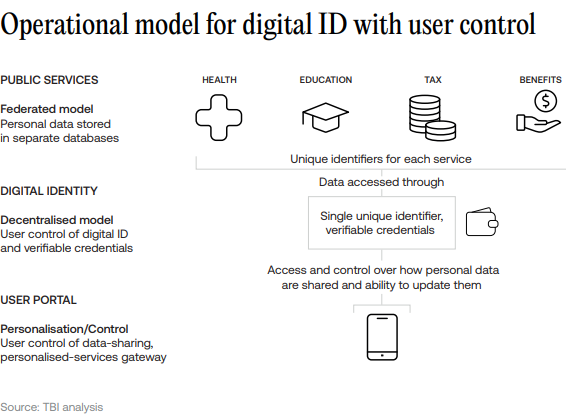
The report “The Economic Case for a UK Digital ID” claims that digital ID can be used for everything from integrating “personal health records and personal data” to streamlining taxation and welfare payments, as well as for managing refugees and asylum seekers.
The total cost of a digital ID rollout in the UK, according the report, would cost at most £1.4 billion [$1.8 billion], and a digital ID scheme could be developed and deployed “over the course of a single parliamentary term (five years).”
“Citizens would retain control over how linked they want their data from different databases to be via a user portal/app, while controlling how their digital identity attributes are used through a digital wallet (decentralized model)”
Tony Blair Institute, The Economic Case for a UK Digital ID, 2024
Tony Blair has been pushing the digital ID agenda for many years for a variety different reasons, from vaccine passports to tracking refugee statuses.
A TBI spokesperson told Politico EU that the organization was not advocating for mandatory digital ID cards, saying, “Everyone loves to talk about ID cards or government ID. That’s not actually our proposal,” adding that TBI’s vision is for people to be given “the ability to connect [their] data across the public sector.”
Speaking at the WEF-backed, Russian-based Cyber Polygon 2020 cybersecurity training exercise, former Blair stated with confidence that governments were “absolutely, inevitably” moving in the direction of digital identity adoption.
In his Cyber Polygon 2020 talk, Blair didn’t make the case for why having a digital identity was actually necessary to prevent a cyber pandemic, but rather that digital identities would be an inevitable part of the digital ecosystem and would be crucial for managing health records, transaction data, and immigration status.
Digital identity is one of three major components of what is known as Digital Public Infrastructure (DPI), which also includes massive data exchanges, and a fast digital payments system, which can include the use of a Central Bank Digital Currency (CBDC).
India is considered to be one of the world leaders in DPI, which everyone in the space refers to as the “India stack.”
Last year, India’s Aadhaar digital ID architect Nandan Nilekani said that everybody should have a digital ID, a smartphone, and a bank account because these were the “tools of the new world” upon which everything else was built.
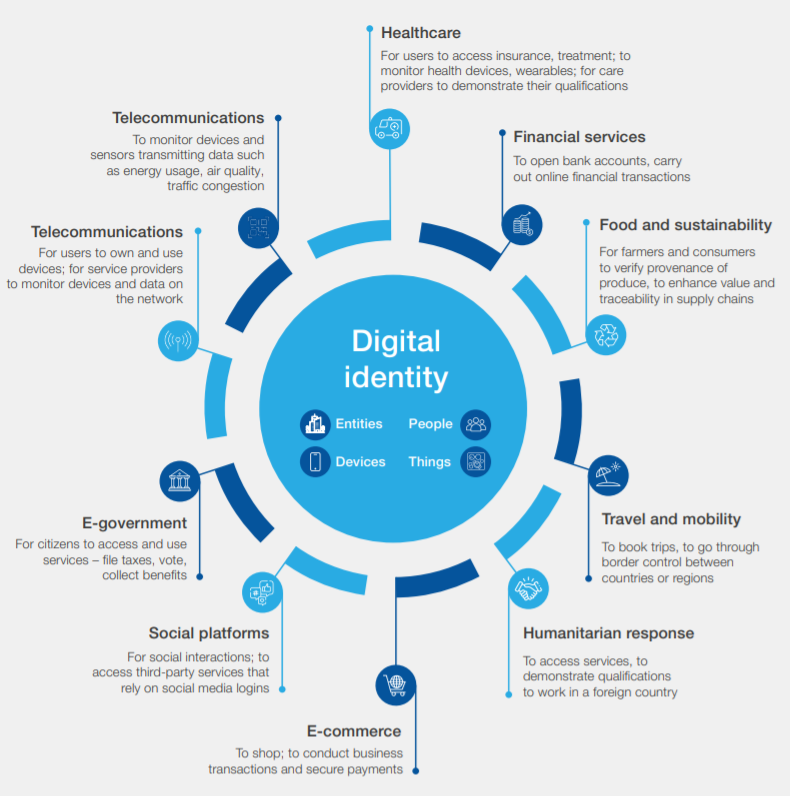
In November 2023, the UN and the Bill and Melinda Gates Foundation partnered to launch the 50-in-5 campaign to accelerate DPI rollouts in 50 countries within five years.
Earlier this year, the European Union parliament said that its digital identity wallet would be voluntary, which is what India said about its own digital ID scheme before government agencies began mandating it for certain services.
At the WEF annual meeting in Davos this year, Queen Maxima of the Netherlands said that a digital ID was good for knowing “who actually got a vaccination or not.”
Image Source: Screenshot of Tony Blair from the TBI Future of Britain Conference 2024



